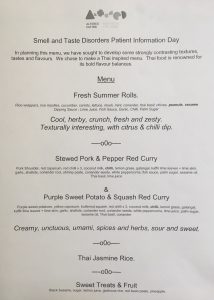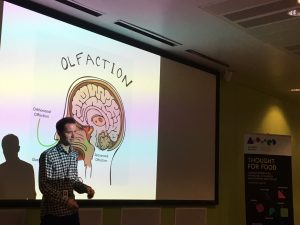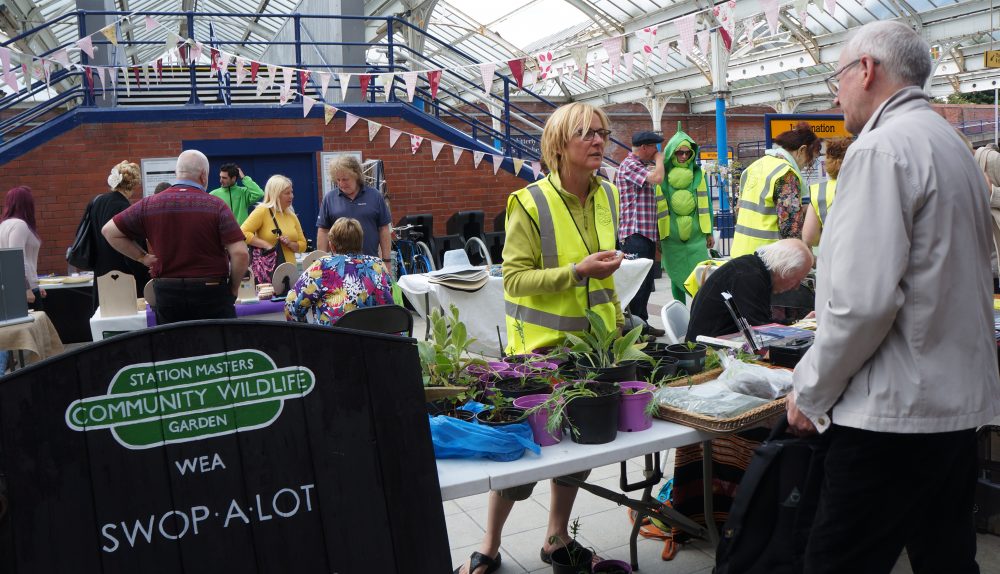
Today at Newcastle University with the charity Fifth Sense for people with smell and taste disorders, we held a patient information day. It was an insight into the challenge of living with the loss of the aroma of food, and the lack of understanding and support for those that do. As Stephen Ball, consultant ENT, suggested, if you turn up to a health professional with a loss of eyesight, or can’t hear, something happens. If you turn up because you can’t smell anything you’ll be lucky if you get a referral and very lucky if they take it seriously – it just doesn’t get talked about. But loss of the sense of smell, or changes to the sense of smell, can have manifold consequences for daily living. It’s no fun eating when you can’t taste the food, and even worse if you experience parosmia when you can’t identify the smell, or even worse if everything smells bad. We heard many stories from those present -Joanne talked about the experience of a bad cold that led to parosmia – everything smelled of burning rotting flesh. She didn’t want to eat, to see anyone, and she became a recluse until she discovered some drug options that could suppress the bad smells and she could eat again – though bitter tastes are still a problem for her. Another guest talked about the head injury they’d had and how without smell, it washed the colour of living away.
The altered eating group and Chef Sam prepared a lunch for the 30 or so people present, made up of dishes inspired by Asian spices and interesting textures. The lunch went down a treat. I introduced the wonderful insights from another chef – Fuchsia Dunlop. Fuchsia changed the way I think about the texture of food and how in Chinese cuisine, texture is as important an element of what they enjoy as ‘taste’ is. She has a great video on how to enjoy eating sea cucumber – its a good lesson in thinking about food differently.

Overall, we came to understand more about the social and emotional consequences and challenges of living with altered eating issues, and the need for more research, more understanding, more support for those that do. We also understood that there are ways of coping that rarely get talked about. We also appreciated that just by gathering together around food and talking about it, there is a sense that you are not alone with these troubles. Altered eating is not unique by any means, we need more events like this to share the experience…

